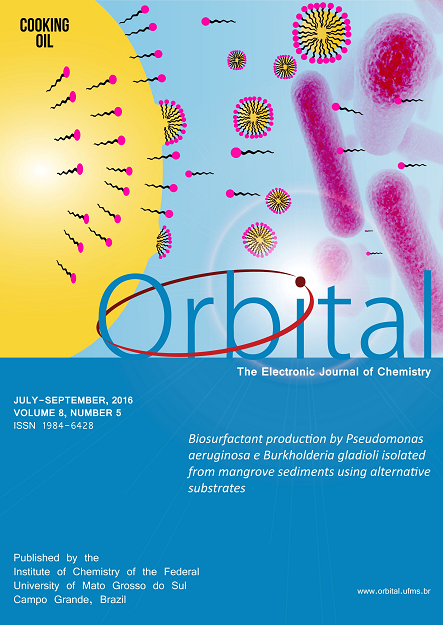Biosurfactant Production by Pseudomonas aeruginosa and Burkholderia gladioli Isolated from Mangrove Sediments Using Alternative Substrates
Published 2022-08-30
Keywords
- biodegradation,
- waste cooking oil,
- vegetable oil,
- drop-collapse,
- emulsification index
How to Cite
Abstract
Biosurfactants are surface-active agents produced by a variety of microorganisms. To make biosurfactant production economically feasible, several alternative carbon sources have been proposed. This study describes biosurfactant production by strains of Pseudomonas aeruginosa and Burkholderia gladioli isolated from mangrove sediments in Northeastern Brazil and cultured in mineral media enriched with waste cooking oil. The biosurfactants were tested for drop collapse, emulsion formation and stability and surface tension. P. aeruginosa performed better both at lowering the surface tension (from 69 to 28 mN/m) and at forming stable emulsions (approximately 80%) at 48 hours of culture. The strains tested in this study were found to be efficient biosurfactant producers when cultured on substrates enriched with vegetable oil.

